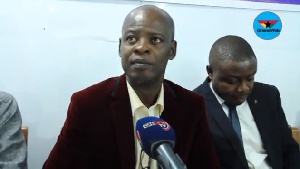Although government has narrowed spending areas to four, including agriculture, the Public Interest and Accountability Committee (PIAC) still believes government is spreading oil money too thinly and thereby neutralising its impact on livelihoods.
To reverse the trend, PIAC would rather government spent most of the Annual Budget Funding Amount of petroleum revenues on the agriculture sector, due to its broad-based economic impact potential.
According to PIAC, Ghanaians have not derived the expected petroleum revenue impact – largely because managers of the economy have been spending it on a wide range of projects and initiatives.
This, the committee that is mandated to monitor how oil revenues are spent said, can only change if oil receipts are prudently invested in modernising agriculture to position it as a major economic driver.
Per the Petroleum Revenue Management Act (PRMA), there are twelve priority areas of the economy that government has to choose four from as a medium-term investment portfolio.
The areas are agriculture & industry, science & technology, potable water, infrastructure development, health care and social welfare. The rest are rural development, environmental protection, public security, alternative energy sources, housing delivery and strengthening of institutions.
Since commercial oil production in the country started in 2010 through to 2017, a total of US$4.009billion has been realised. Of the amount, GH¢357,063,440 was invested in modernisation of agriculture from 2011 to 2016.
Other medium-term priority areas were road & other infrastructure, amortisation and capacity building.
PIAC is of the opinion that the allocated petroleum revenue to agriculture during that period was insufficient, and also not utilised prudently to achieve the intended purpose.
The Chairman of PIAC, Dr. Steve Manteaw, said the over-GH¢357million oil money invested in agriculture did not make any significant impact on the sector.
“GH¢180,614,691 was allocated to coastal protection facilities in fishing communities; what is the direct benefit of this project on the growth and development of agriculture?” he quizzed.
He was addressing a public forum held at Goaso in the Asunafo North Municipality of the Brong Ahafo Region. The forum was part of monitoring and inspection of petroleum-funded projects in Brong Ahafo by PIAC and the Institute of Financial and Economic Journalists (IFEJ), supported by the German Development Cooperation (GIZ).
He also observed that government’s tax revenue spending on agriculture has reduced drastically since the inflow of oil revenue, saying: “Petroleum revenue must be used to complement the existing allocations to the sector, but not to replace”.
On his part, Noble Wadzah – a member of PIAC, underscored the need for judicious use of oil revenue to avoid the ‘resource curse’.
“Since agriculture has been the mainstay of the economy, it’s therefore business-wise to invest oil proceeds into the transformation of agriculture rather than relying on the non-renewable resource as the economy’s cash-cow.”
Business News of Wednesday, 6 June 2018
Source: thebftonline.com













